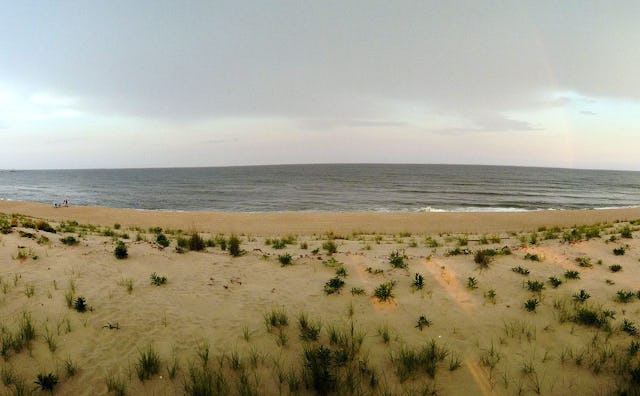7 Reasons Why Doing Nothing Is An Ideal Summer Plan For Your Kid

I was a nerdy kid: I read nonstop; I was a drama geek, enrolled in Shakespeare classes and poetry workshops; I wrote meandering, boring stories about drawbridges and crossroads (metaphor alert!). I generally did my own thing, and while my teenage classmates were working lifeguard jobs or camp counselor positions, I hunkered at my grandparents’ at the shore, just me and the retirees, from June to August. And while this had drawbacks—I had to make a special effort to see people my own age; we ate dinner at 4 p.m.—it also had a number of advantages, and I highly recommend it for at least a couple of summers of a teen’s life. Below, seven reasons why a summer with nothing to do is the way to go.
1. They can launch weird self-improvement projects.
I would set strange goals for myself: Read two pages of the Bible a day and try to understand them. Memorize a passage from King Lear. I put olive oil in my hair for days on end, hoping that obsessive conditioning would change it fundamental lankness.
2. They learn failure.
Turns out you can’t change the texture of your hair, and olive oil is really hard to wash out. Portions of Genesis will put you to sleep. Lear is rather hard to memorize, and while you’re doing it, you might get distracted by one of the lifeguards at the beach. But even the efforts, even if they don’t yield “success,” are valuable all by themselves. They teach kids to make a plan and execute it.
3. They can actually get to know the members of their family.
Summers sitting on the porch with the old folks put me a little out of step with my classmates, who were all hyper-focused on doing things that would look good on college applications. But I knew my grandparents wouldn’t be around forever, and I didn’t want to spend time Xeroxing in a law firm when I could be learning to make my grandma’s beach plum jelly.
4. They’ll learn sensitivity.
Sometimes being completely out of step with your peer group can give you a calmer, broader view of the world. Doing nothing in the summer, when your friends all have activities, often means kicking around town, talking to other people—people who aren’t necessarily your age. I spent a lot of time talking to my grandmother about her work as a psychologist and my grandfather’s work as a reporter. I was also able to be some help to them as they aged, which was a small dose of empathy for a generally self-centered teen.
5. They’ll learn self-actualization.
If the whole day or summer is stretching before you with nothing planned—and with no parent telling you what you need to do—you realize pretty quickly that the only person responsible for you is you. You make your own fun, and you make your own projects. Or you’ll lose your freaking mind.
6. They’ll learn the benefits of boredom.
It took me a long time to be realize this, but boredom is not a bogeyman to be feared. In fact, it’s the first stage of creativity: That vague discomfort that comes from lack of stimulus is what gives you space to think up new things.
7. They can exercise for as long as they want, at their own pace.
Stay with me for a second. Never after in my life have I had the time or energy to exercise the way I want to, which tends to be long, slow bike rides or leisurely swims that are really mostly floating. (As an adult, exercise is driven by guilt: I try to cram in a frantic workout between work and dinner and usually skip it altogether. There’s not a lot of joy there.) As a teen I exercised just as a part of my everyday life, because I liked to, as I was exploring the town and local beaches. Now that kind of active-but-also-meditative lifestyle seems like an impossible luxury.
I miss those summers! Here’s to nothing, which is a lot more than we give it credit for.
This article was originally published on